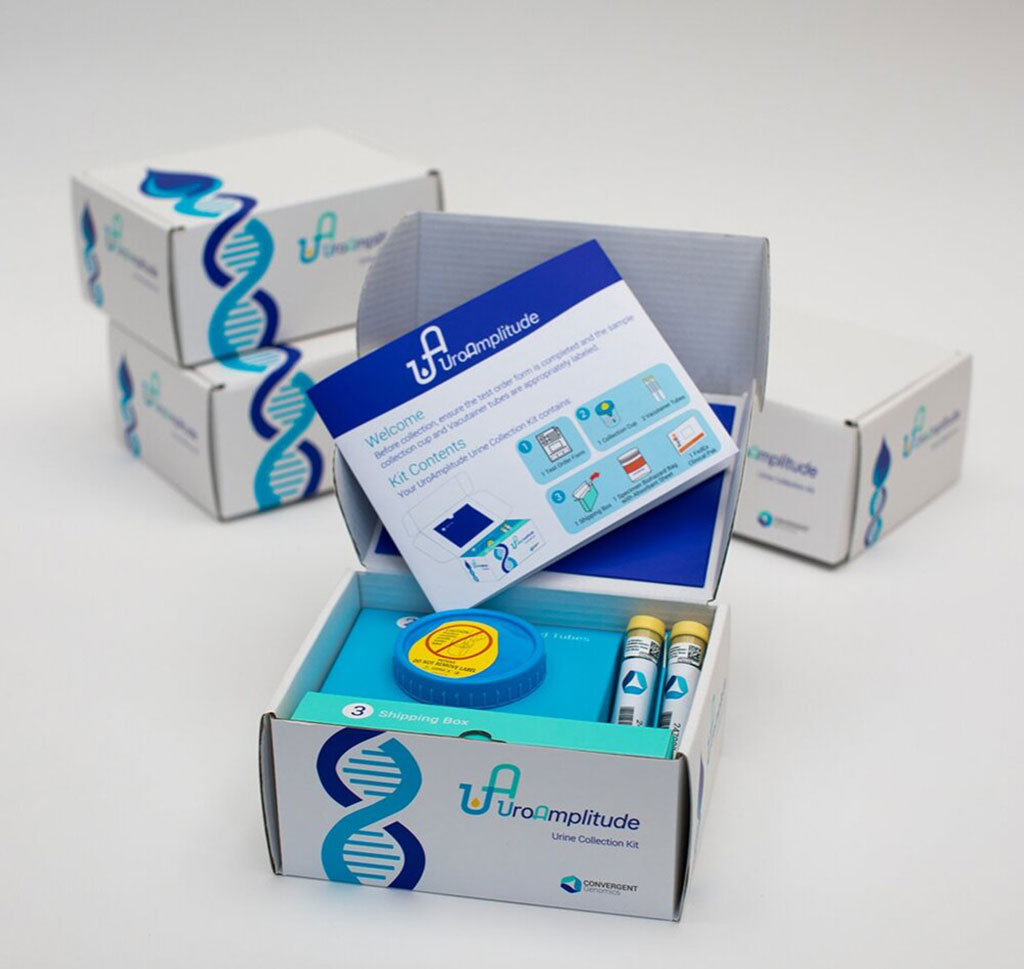Urine Gene Test Could Detect Bladder Cancer Years Before Symptoms Arise
Posted on 14 Mar 2023
Bladder cancer is a highly prevalent disease, ranking among the top ten most common cancers in the UK and the fifth most common in the European Union. Unfortunately, the prognosis for those diagnosed with advanced bladder cancer is bleak, as only around 50% of patients survive for more than five years, primarily due to late diagnosis and recurrent episodes of the disease. However, detecting bladder cancer in its early stages can increase the chances of survival, and more than 80% of patients who receive an early diagnosis survive for at least five years. Now, new research has shown that testing for genetic mutations in urine can detect bladder cancer years before clinical symptoms develop.
The study by researchers from France, Iran and the U.S., was based on the UroAmp test, a general urine test that identifies mutations in 60 genes, developed by Convergent Genomics (South San Francisco, CA, USA), and identified mutations across 10 genes that could predict the most common type of bladder cancer up to 12 years before a diagnosis. By utilizing prior research to identify specific genetic mutations associated with bladder cancer, the researchers narrowed the new test down to focus on mutations within just 10 genes. In collaboration with experts from Tehran University of Medical Sciences, they conducted a trial of the new test. They utilized samples collected from individuals enrolled in the Golestan Cohort Study, which has been monitoring the health of more than 50,000 participants over 10 years, and who provided urine samples during recruitment. Over the course of the study, 40 individuals developed bladder cancer. The research team tested urine samples from 29 of these patients, in addition to samples collected from 98 comparable participants as controls.

From the 29 patients in the Golestan cohort who developed bladder cancer, the test successfully predicted bladder cancer in 19 individuals (66%), despite urine samples being collected from some of these patients up to 12 years before receiving a clinical diagnosis. Out of these participants, 14 were diagnosed with bladder cancer within seven years of their urine being collected, with the test predicting cancer in 12 (86%) of these patients. The test returned negative results for 94 of the 98 participants (96%) who did not develop cancer in the future. Additionally, among the individuals who tested negative but did eventually develop bladder cancer, there was no diagnosis of cancer until at least six years after the urine sample was collected.
Further, in collaboration with colleagues from Massachusetts General Hospital and Ohio State University the test was trialed using samples from 70 bladder cancer patients and 96 controls, taken before a cystoscopy was done. Unlike the Golestan study, some of the urine samples were provided on the same day as the diagnosis instead of years before. Out of the samples from the bladder cancer patients, there were mutations in the urine of 50 (71%) patients who also had visible tumors during cystoscopy. Some of the patients were diagnosed with bladder cancer for the first time, while others had a recurrence of the disease. Conversely, out of the 96 patients with negative cystoscopy findings, 90 (94%) did not have any mutations in their urine. Based on these findings, the researchers concluded that a genetic urine test could be an effective tool for detecting bladder cancer early on.
“Diagnosis of bladder cancer relies on expensive and invasive procedures such as cystoscopy, which involves inserting a camera into the bladder,” said lead researcher Dr. Florence Le Calvez-Kelm, from the International Agency for Research on Cancer (IARC). “Having a simpler urine test that could accurately diagnose and even predict the likelihood of cancer years in advance could help to spot more cancers at an early stage and avoid unnecessary cystoscopies in healthy patients.”
Related Links:
Convergent Genomics














